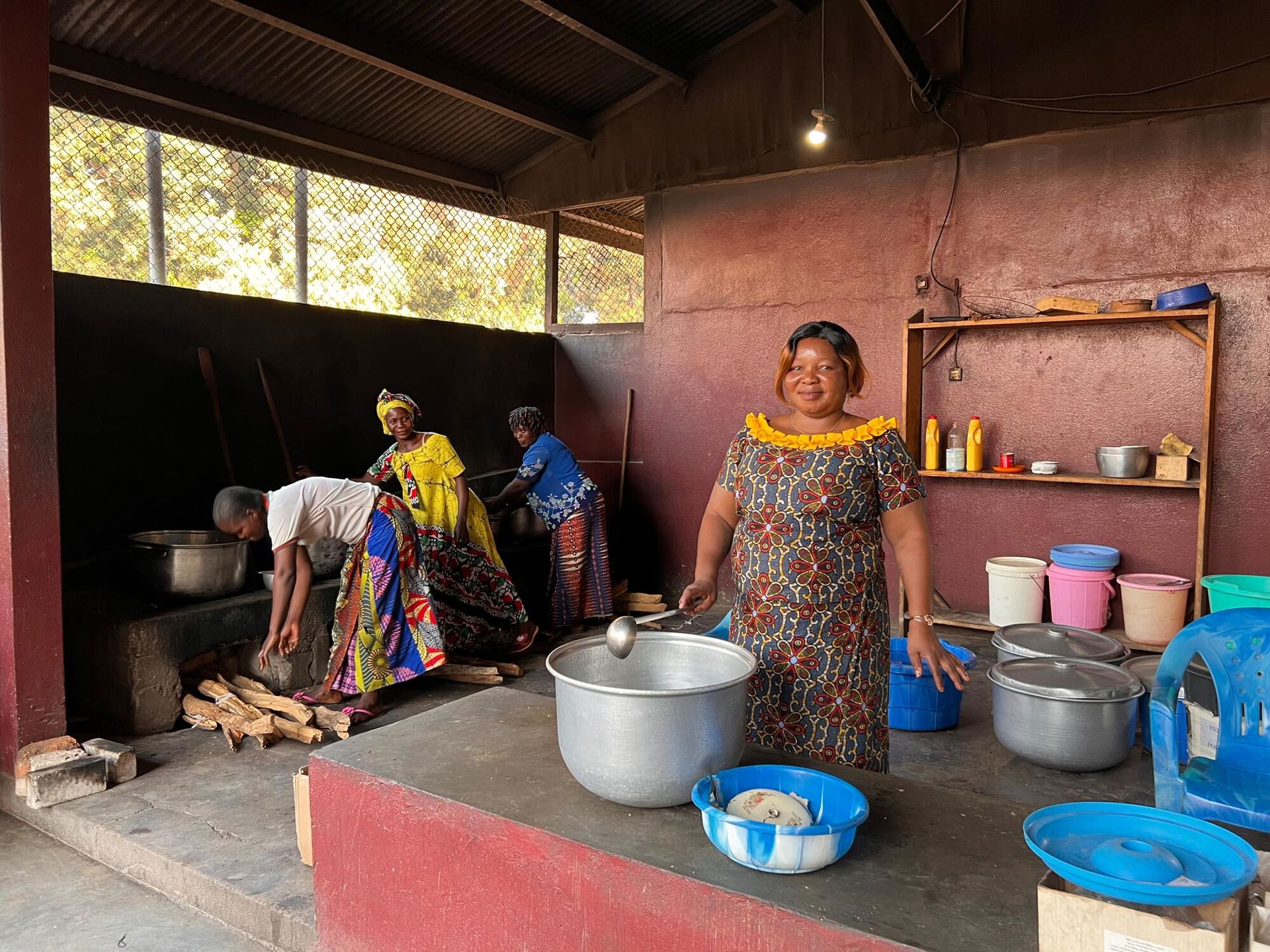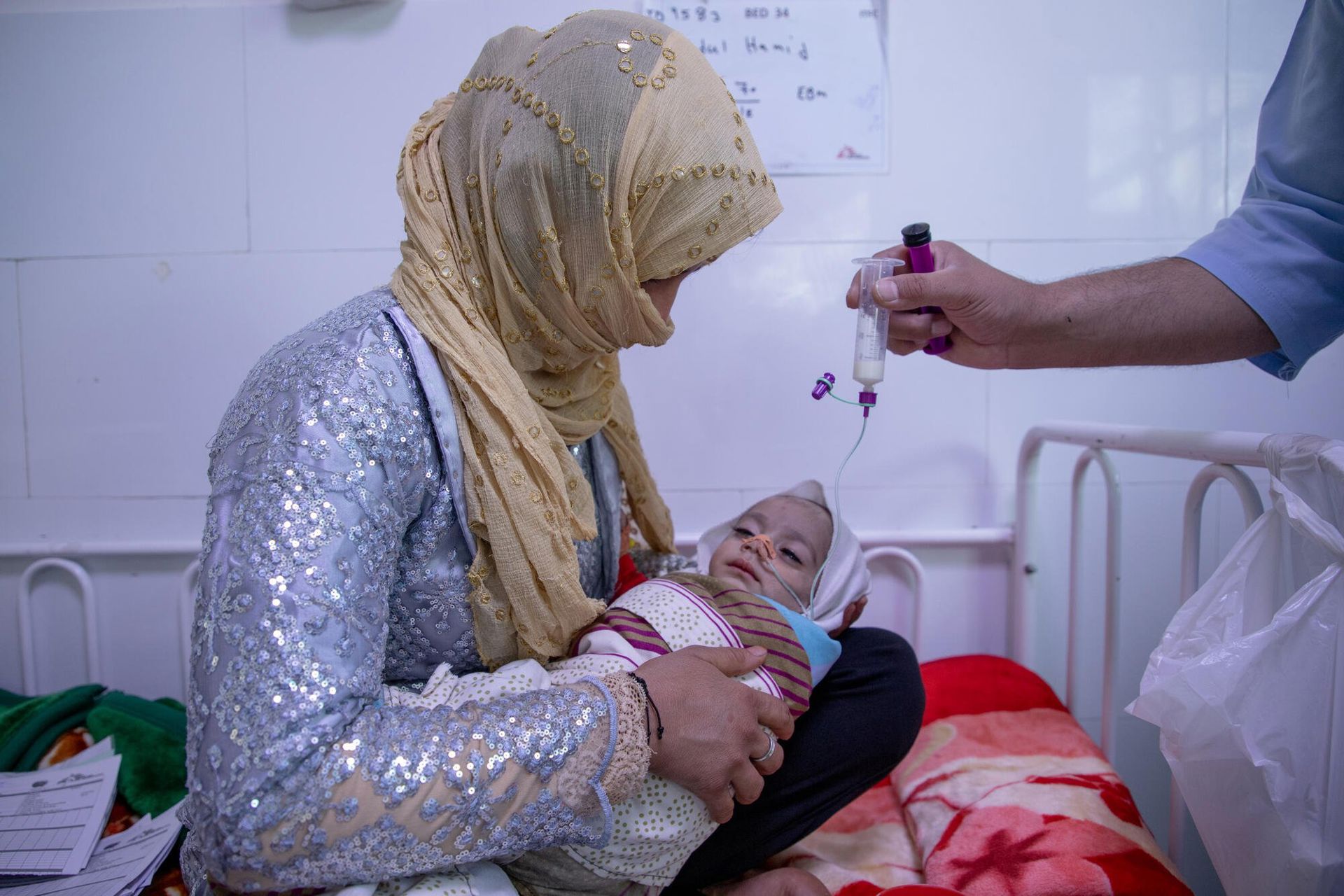A 41 per cent of people in Central African Republic (CAR) do not have enough food, according to a United Nations report in 2023. Between October 2022 and August 2023, it was estimated that nearly 298,000 children aged 0-59 months and more than 140,600 pregnant and breastfeeding women suffered from acute malnutrition, according to figures from the IPC report (Integrated Food Insecurity Classification Framework) for acute malnutrition. The Bossangoa region is one of the areas particularly affected by malnutrition in CAR.
“The consequences of chronic malnutrition on young children affect, often irreversibly, their metabolism and immune system, leading to stunting and greater vulnerability to disease.” explains Emma Augustine Zoba, deputy medical coordinator for Médecins Sans Frontières (Doctors Without Borders/MSF) in CAR.
Acute malnutrition, on the other hand, sets in quickly and, if not treated immediately, can lead to death. In response to this major challenge in Bossangoa, MSF, working in support of the Ministry of Health, has set up a malnutrition prevention programme in the regional hospital. Health promotion teams are working to raise awareness among patients and carers, providing information on the risks of malnutrition and how to prevent it and reduce its symptoms through good eating habits.
Prevention as a key factor
Raising awareness is key to addressing malnutrition. In response to the high number of cases of malnutrition in Bossangoa, MSF organises cooking workshops twice a week at the hospital. All patients and carers are invited to take part and help prepare the meal, which is then shared among the participants.
"The best way to raise awareness is to get people involved! On the day [of a recent workshop], around ten people attended, many of them mothers with their babies," explains Angela Senendo, the nutrition assistant who runs the culinary workshop.
“We cover the essentials, such as food preservation, how to maintain the nutritional value of products before, during and after cooking, and how to use produce from the harvests. We also train mothers to spot the first signs of malnutrition in children and the importance of nutrition during the first three years of life", continues Angela, after presenting the recipe of the day and the hygiene rules that need to be followed.
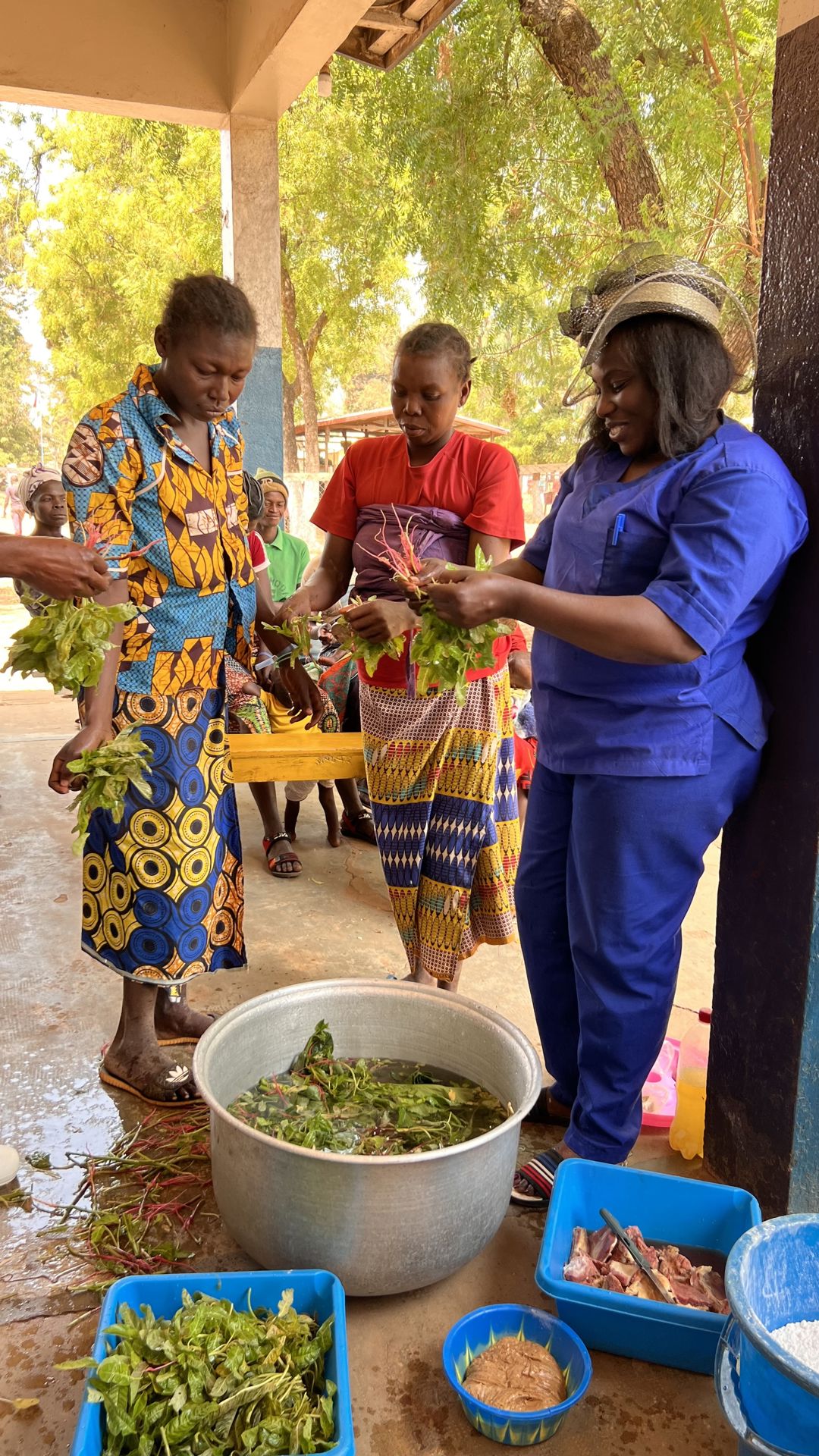 One of the hospital cooks begins to prepare the meal for the patients and their companions. © Charlotte Sujobert/MSF
One of the hospital cooks begins to prepare the meal for the patients and their companions. © Charlotte Sujobert/MSF
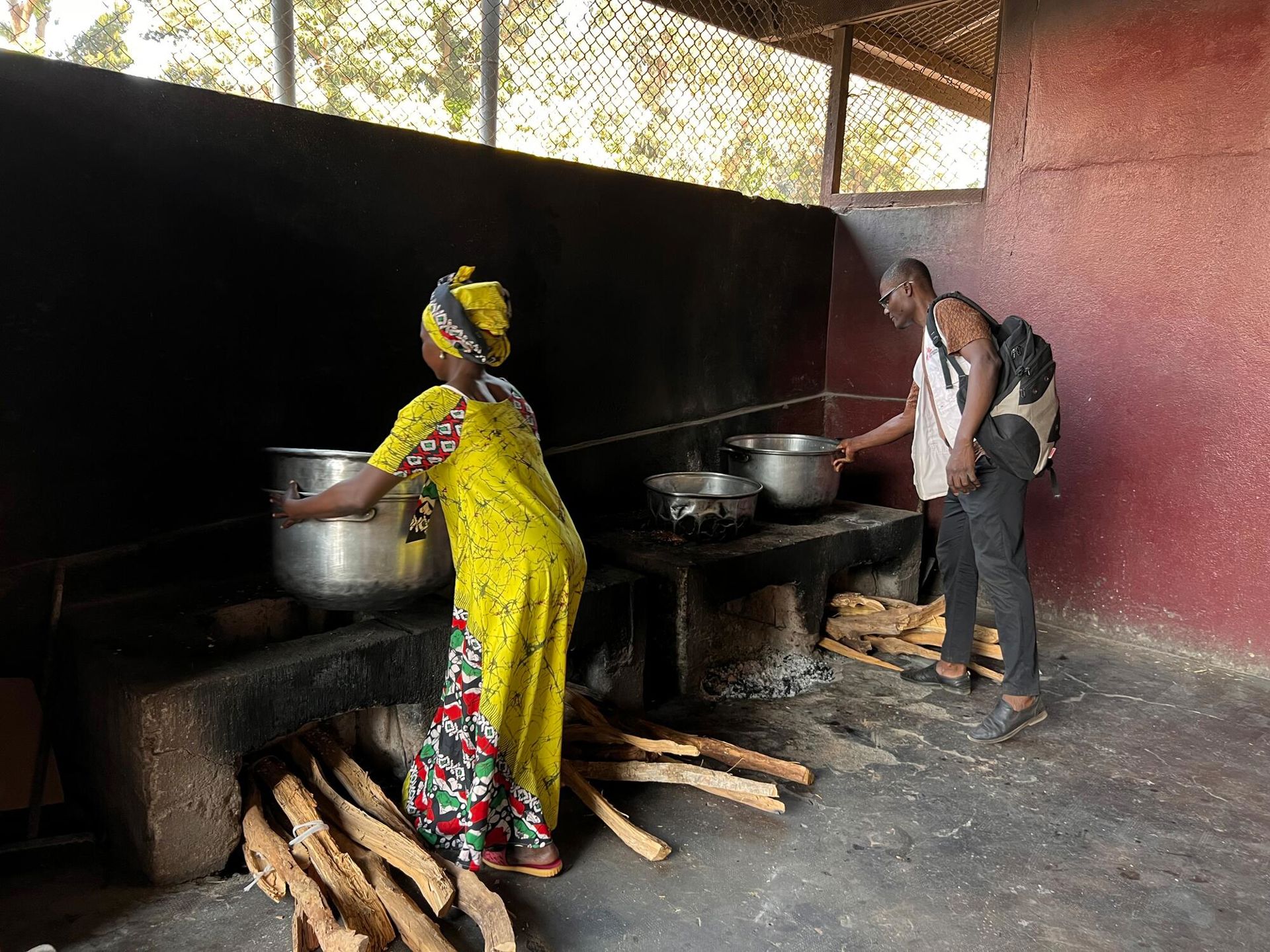 The cooks prepare 3 meals per day for patients and their companions. © Charlotte Sujobert/MSF
The cooks prepare 3 meals per day for patients and their companions. © Charlotte Sujobert/MSF
Ensuring follow-up care
Access to healthcare remains a daily challenge for people living further away from hospitals. The main reasons that prevent a patient from getting to hospital are transport costs, the state of the roads and insecurity. Even if a patient makes it to hospital, in most cases the patient or his or her family will not be able to return home.
"To guarantee access to care for patients, MSF covers their transport costs and distributes meals to them and their accompanying families. The hospital cooks prepare three meals a day. Without this scheme, prolonged hospitalisation for the patient would put their family in difficulty," explains Dr Mahamadou Coulibaly, MSF doctor at Bossangoa regional hospital. This financial support enables patients to receive all the care they need regardless of the length of their treatment or recovery.
"Since these measures were put in place, the hospital has seen a drastic drop in the number of patients who give up their treatment. The fact that patients don't follow their course of treatment is a recurring problem, even though it's not a matter of them exercising a choice, instead they are forced to do so due to the external and economic context," continues Dr Coulibaly.
During each awareness-raising session, the health promoters systematically screen malnourished children aged between 6 months and 59 months. All severely malnourished children are referred for outpatient or hospital treatment, depending on the child's level of malnutrition. Access to care in a timely manner helps to reduce the complications associated with malnutrition.
In a context where access to healthcare is a challenge for communities affected by malnutrition, being able to take care of the needs expressed by families makes all the difference.
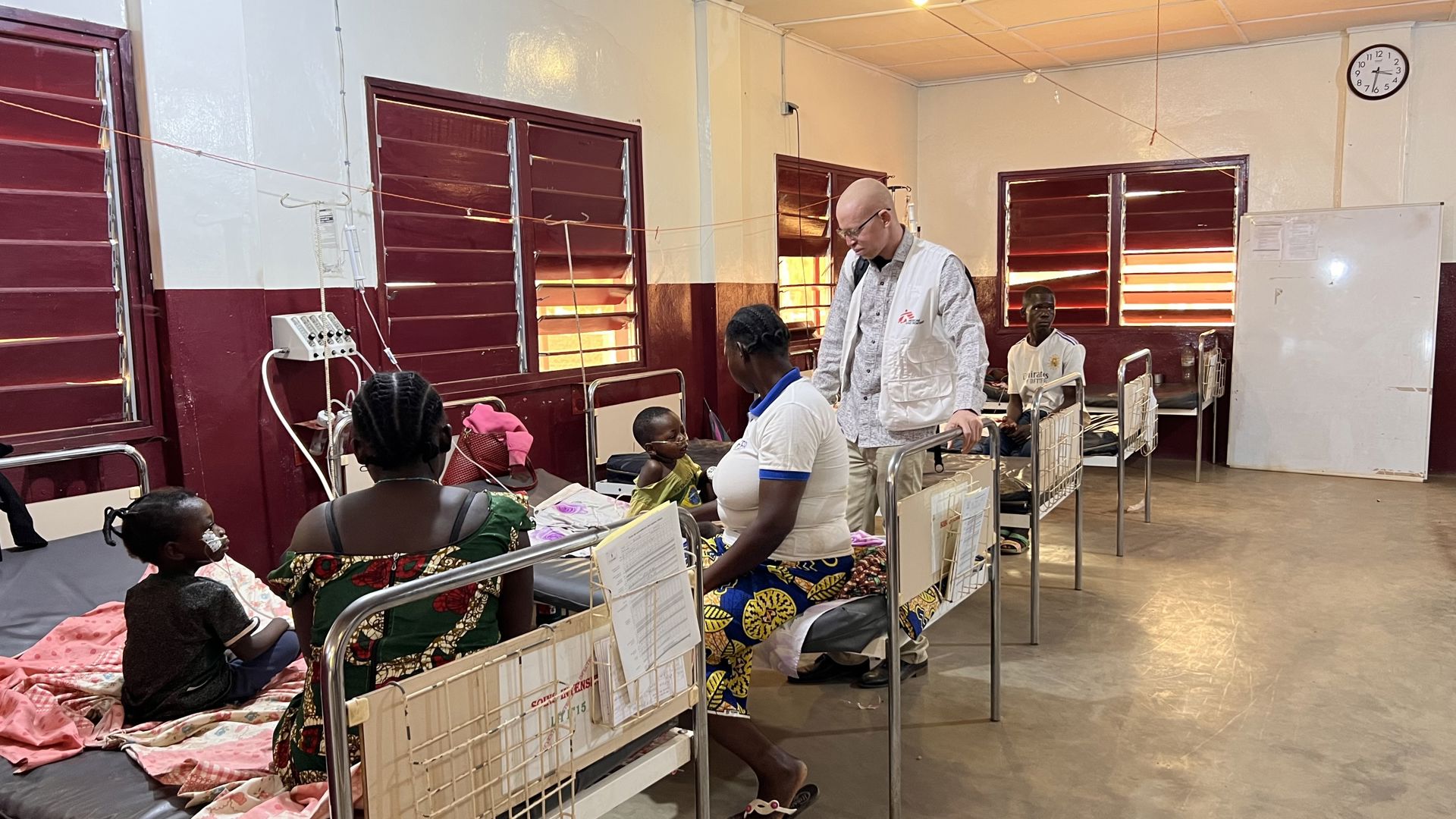 Dr Coulibaly conducts medical examinations for patients in the pediatrics of Bossangoa hospital. © Charlotte Sujobert/MSF
Dr Coulibaly conducts medical examinations for patients in the pediatrics of Bossangoa hospital. © Charlotte Sujobert/MSF


